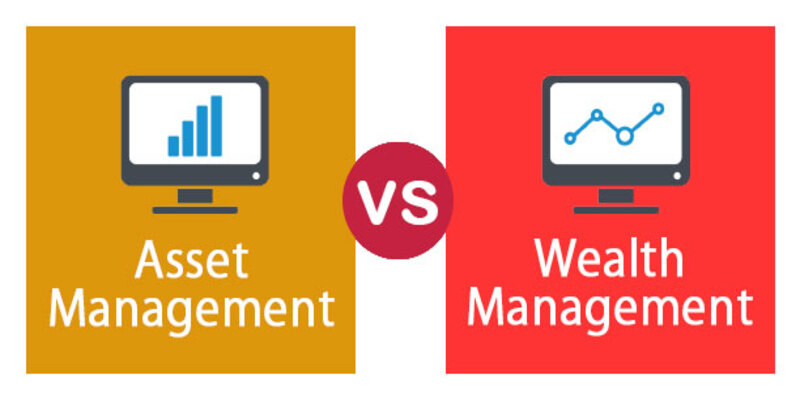Are you familiar with the concept of Windfall Tax? Are you looking for more information on this crucial form of taxation? Whether you’re a homeowner confronted with unexpected profit from the sale of your home, an investor hoping to understand how your funds will be taxed, or you simply want to learn more about Windfall Tax and its implications, we have all the answers.
In this comprehensive guide, explore everything there is to know about windfall tax - from what it is and why it exists in the first place to how much it costs and who needs to pay it.
What Is a Windfall Tax?

A windfall tax is imposed on a person or entity that has unexpectedly acquired money, goods, services, or other benefits. It is also known as an "excess profits tax" in the United States.
Windfall taxes are typically levied when there are extraordinary circumstances involved in the acquisition of money and assets. Examples include natural disasters such as floods, hurricanes, earthquakes, or the sudden gain of assets or income due to changes in economic conditions.
Why Is Windfall Tax Needed?

The windfall tax is designed to redistribute wealth among citizens who have gained large sums of money from unexpected sources. It is also used to tax corporations or businesses on their profits when they benefit from certain situations, such as natural disasters or changes in the global economy.
The windfall tax aims to ensure businesses and individuals do not reap an unfair advantage by profiting from a particular event or situation.
How Windfall Taxes Work
Windfall taxes are levied based on a person's or business' unexpected gains in a given year. The tax rate is usually determined by the total profits earned above and beyond what was expected for that period.
For example, if an individual or business earns $100,000 in profits during a certain period but only expects to earn $50,000, the windfall tax would be applied to the additional $50,000. National or state laws usually determine the rate of taxation and can vary significantly depending on the amount of profits earned.
The Windfall Tax Debate
The windfall tax has been the subject of considerable debate over the years. Supporters say that it is a necessary tool for ensuring fairness in tax policy and helping to reduce economic inequality.
Opponents, however, argue that the windfall tax is unfair and double taxation because it taxes citizens or businesses on profits earned from unexpected gains. As such, many countries have abolished the windfall tax in recent years, with other countries only imposing it on a limited basis.
Windfall Taxes on Individuals
For individuals, windfall taxes are typically levied on selling certain assets or property. For example, if you sell your home for a greater-than-expected profit, you may be subject to a windfall tax. Another common instance is when an individual inherits a large sum of money from a deceased relative and must pay taxes on the unexpected income.
Windfall taxes also apply to gambling winnings and other forms of unearned income. Generally, the rate of taxation depends on the amount of money beyond a person’s expected income.
For example, if an individual earns $100,000 in income but only expects to earn $50,000, they may be subject to a windfall tax rate on the additional $50,000.
Windfall Taxes on Businesses
For businesses, windfall tax is applied when they gain unexpected profits from certain situations or events. Windfall taxes could include an increase in demand for a particular product or service due to a natural disaster, changes in government policy, a sudden decrease in the cost of raw materials, or any other situation that enables a business to gain greater profits than what was expected.
Windfall taxes are also sometimes imposed on companies when they receive large amounts of money from government grants or incentives. Sometimes, businesses may be partially or fully exempted from windfall taxes if they meet certain criteria. The windfall tax aims to ensure businesses don't gain an unfair advantage over their competitors and help spread wealth more fairly.
Who Pays Windfall Tax?
The responsibility for paying windfall tax falls on the person or business that has gained unexpected profits or assets. However, it is important to note that how much tax is due and who collects it can vary significantly from one jurisdiction to another.
For example, in some cases, the government may collect the tax directly, while in others, taxation authorities may require individuals or businesses to submit a self-assessment of their gains and pay accordingly.
How Much Does Windfall Tax Cost?
The windfall tax due will depend on several factors, including the size of the unexpected profits and the applicable laws in your jurisdiction. In general, however, it is important to remember that any unexpected gains should be treated as taxable income, and taxes must be paid accordingly. It is best to consult a qualified accountant or taxation expert to ensure you are paying the correct amount of windfall tax.
Benefits of Windfall Tax
- Windfall tax helps to reduce economic inequality and ensure fairness in taxation.
- It encourages companies to invest in innovative measures that help their community by reducing the tax burden on those profits.
- Windfall taxes provide an additional source of income for governments, which can be used to fund essential services or infrastructure projects.
- Windfall taxes can discourage companies from taking advantage of natural disasters or other unexpected events by profiting from them.
- By taxing profits from unexpected sources, windfall tax helps incentivize responsible behavior about the environment and public safety.
- Windfall taxes can also encourage businesses to invest more in research and development activities and employee training.
- Windfall taxes can benefit the economy by leveling the playing field for businesses and creating a more equitable operating environment.
- Finally, windfall tax helps ensure that companies do not gain an unfair advantage over competitors due to sudden changes in conditions or events outside their control.
Overall, windfall taxes are an important tool for ensuring fairness in taxation and helping to reduce inequality. While they may not always be popular, they can play a valuable role in boosting economic growth and improving the lives of citizens.
FAQS
How can we protect windfall from taxes?
To protect your windfall profits from tax, it is important to consult a qualified accountant or taxation expert who can advise you on the best course of action. Some jurisdictions may allow exemptions for certain unexpected gains, so check what options may be available in your area.
How do you prepare for a windfall?
Preparing for a windfall means understanding the tax implications of your unexpected gains and planning accordingly. It is important to consult with a qualified taxation expert to understand what taxes may be due and plan your finances accordingly. Creating an investment strategy to maximize your newfound wealth is also wise.
What is the windfall source of funds?
A windfall source of funds is any unexpected sum, typically received from a third party or as an inheritance, that may be subject to taxation. Examples include selling a property for a profit, gambling winnings, and other types of unearned income. It is important to understand the tax implications of your windfall before investing in any way.
Conclusion
After reading this article, you now understand the nuances and complexities of a windfall tax. By comprehending the rationale behind this important concept, you can think more critically about how to approach your tax strategies. We hope this blog post improved your knowledge of windfall tax and positively shaped your financial planning. This conclusion is just the beginning - continue to learn more about windfalls taxes by browsing online tutorials, attending webinars from professionals in the field, or even diving into government documentation on taxation.




